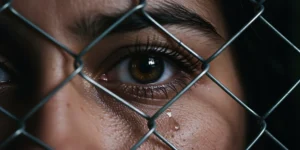Nature's Flavors Of Consciousness Await In Mescaline's Embrace
How has the use of mescaline in Native American spiritual practices shaped contemporary perceptions of its hallucinogenic experiences? Our counsellors are here to help you today.
FREE ASSESSMENT082 747 3422Mescaline, a term that might evoke images of spiritual and psychedelic experiences, is a hallucinogenic drug derived from the mescal buttons of the peyote cactus. This natural compound has a long history, primarily rooted in Native American spiritual practices, particularly among the indigenous peoples of the Americas.
Traditionally, mescaline was used in religious ceremonies for its psychoactive properties. When ingested, it induces a state of altered perception, vivid visuals and profound introspective insights. This has made it a significant part of various spiritual rituals, where the altered state of consciousness was often interpreted as a means of communicating with spiritual realms or gaining deep personal insights.
The use of mescaline and peyote in these contexts predates recorded history, highlighting its longstanding cultural and spiritual significance. However with the advent of modern drug regulation, the status of mescaline changed. In many countries, it’s classified as a controlled substance due to its potent psychoactive effects and potential for abuse outside traditional contexts.
Unlike some other hallucinogens, mescaline’s effects are often described as gentler with a focus on vivid colors and patterns, emotional introspection and a sense of connectedness with the world. However, it’s important for you to understand that like any hallucinogenic drug, mescaline’s effects can vary greatly depending on the individual, the environment and the dosage. This unpredictability is a key reason why its recreational use is risky and often discouraged. While mescaline is not considered physically addictive or toxic, it can still have significant psychological effects. Individuals using mescaline may experience vivid visual hallucinations, heightened sensory perception, altered sense of time and intense introspection. These effects can last for up to 12 hours.
There has been a growing interest in the potential therapeutic uses of hallucinogens, including mescaline. Research is exploring their role in treating conditions like PTSD, depression and substance abuse disorders. While these studies are still in their early stages, they suggest a potential future where drugs like mescaline might be used in controlled, therapeutic settings. That said it’s worth noting that mescaline is classified as a Schedule I controlled substance where possession or distribution of mescaline can lead to legal consequences.
In the context of addiction treatment and rehabs, the use of mescaline is generally discouraged. Many treatment programs focus on abstinence from all mind-altering substances, including hallucinogens like mescaline. The unpredictable nature of its effects and potential risks make it incompatible with the structured approach of addiction recovery.

12 Step Meetings are a fundamental part of addiction treatment and recovery. If you or…

Symptoms for alcoholism can be broken down into three categories: Withdrawal, dependency and long term.…

The Dangerous Fantasy of “Rock Bottom” For decades, people have romanticised the idea that someone…
What key factors should one consider when choosing a trusted registered detox treatment for alcohol or drug addiction?
How can I sensitively assess whether my loved one is struggling with alcohol use without alienating them?
Inpatient Rehab
Rehab care is a good option if you are at risk of experiencing strong withdrawal symptoms when you try stop a substance. This option would also be recommended if you have experienced recurrent relapses or if you have tried a less-intensive treatment without success.
Outpatient
If you're committed to your sobriety but cannot take a break from your daily duties for an inpatient program. Outpatient rehab treatment might suit you well if you are looking for a less restricted format for addiction treatment or simply need help with mental health.
Therapy
Therapy can be good step towards healing and self-discovery. If you need support without disrupting your routine, therapy offers a flexible solution for anyone wishing to enhance their mental well-being or work through personal issues in a supportive, confidential environment.
Mental Health
Are you having persistent feelings of being swamped, sad or have sudden surges of anger or intense emotional outbursts? These are warning signs of unresolved trauma mental health. A simple assesment by a mental health expert could provide valuable insights into your recovery.
Is My Loved One Addicted?
Your responses are private and not stored.
It’s Professional.
Clinically grounded
Clear, practical guides on addiction and recovery, based on recognised treatment principles and South African experience.
Therapy for addictionIt’s Affordable.
Straight talk on costs
We unpack typical fees, medical-aid issues, and funding options so you can compare treatment choices without sales pressure.
Paying for treatmentIt’s Convenient.
On your terms
Short explainers, checklists, and FAQs you can read, save, and share in your own time, from any device.
What to expect in rehabIt’s Effective.
Better decisions
We focus on evidence-based guidance and honest discussion of risks, relapse, and family impact to support long-term recovery.
Evidence-based















